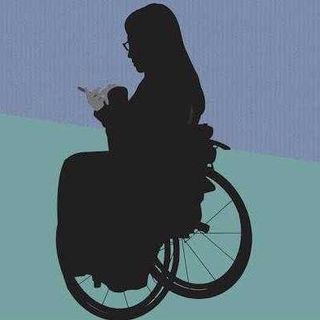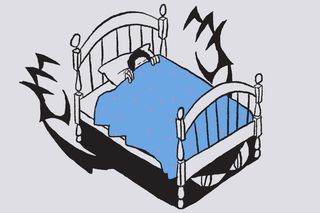
Nightmares Amid the Covid19 Pandemic Could Be Due to Trauma, Overload of Information
Nightmares occur during R.E.M. sleep, when the brain’s suppression systems relax and allow us process our feelings.

Nightmares are not a symptom of the Covid19 strain of coronaviruses — but they might be a symptom of pandemic culture. Disturbed, restless sleep, infused — almost infected — with thoughts of loss, longing and fear has not been not uncommon, especially since the world mostly locked itself down to fight the pandemic.
“In my dream, my mom was yelling at me, but the entire time, she was also pissing herself. … I don’t even know,” said Divya, 24. Teesta, 30, said she dreamed she gave her partner coronavirus and felt extremely guilty about it. Meanwhile, Shristi, 23, dreamed of a giant python going through her belongings in her college dorm after she moved back home.
On the flip side, Sonia’s dreams revolved around nostalgia — dining with her parents, her old home, even studying for exams.
Nightmares occur during rapid eye movement or R.E.M. sleep, which is also when our brain is most likely to remember what we dream vividly. Such dreams could occur to prepare us for events that may happen in the future, leaving us less overwhelmed when we must actually face these threats. Psychiatrists have also previously posited that dreams might actually be good for survival. Nightmares might also help us stop suppressing our emotions and help us process our anxieties, as the brain’s suppression systems relax during R.E.M. sleep.
In our current, unique, shared distress, a few reasons for why we might be plagued with nightmares could be the shared large-scale trauma, an overload of information, and grief. “This feels like a natural calamity that we are not prepared for, but must go through one way or another,” says Kalyani Sohoni, a psychologist and psychotherapist focused on Rational Emotive Behavior Therapy. She adds, “What we see on news channels — specifically about the deaths of people — seems like it could inflict an emotional toll upon us.” She added that these nightmares could happen due to specific themes like the fear of losing a sense of who we are, one’s job, failing health, even death — our own or that of loved ones.
Related on The Swaddle:
For People With Mental Health Conditions, Constant Covid19 Updates Make Everything Worse
“Now the first thought people have post a nightmare is … what if it comes true? There is no theory that states that this might happen…some psychoanalysis might wade into this area, but practically, this isn’t possible. These are mere thoughts present in your mind during the day which replay in your dreams, minus any filter or suppression,” Sohoni says.
However, neglecting these emotions isn’t wise. Since we do recall nightmares after waking up, they can serve as an excellent tool to understand and come to terms with what we’re feeling. “If you have thoughts like these, it’s good to think about whether you’re anxious/stressed and what is really happening around you. The idea is to remain emotionally aware of your thoughts instead of neglecting them,” Sohoni says.
As for dreams centered around loved ones and family, Sohoni states that this is natural, because of the closeness we feel to these people. Our mind immediately wants to think of what would happen to them. Right now, when you don’t have any control over what’s happening around you, anxiousness and helplessness increases. This line of thought plays out during the day, too, but is more active during the night.
The first step to coping with what we’re feeling is to accept that what we’re going through isn’t usual, according to Sohoni. She adds that reducing the consumption of unnecessary, repetitive information helps. For example, limiting the amount of time spent browsing news about Covid19 might help ease the brain’s focus towards other endeavors that are in your control and can be accomplished, like work, hobbies and caring for those immediately around you. What also helps, according to Sohoni, is taking care of one’s health during the day, in order to sleep peacefully at night — schedule the day, in order to avoid disarray and attempt to adopt a relaxing nighttime routine like a shower, or talking to friends and loved ones — specifically about things that are not the coronavirus.
“If you have a troublesome nightmare, it is possible to re-write how they end: say, if you have a nightmare about losing your job, the next day, you can wake up and think — even though I’ve lost my job, I will apply to other places, figure out the assets you have, and remember what you can be dependant upon because hope is important,” Sohoni says.
Aditi Murti is a culture writer at The Swaddle. Previously, she worked as a freelance journalist focused on gender and cities. Find her on social media @aditimurti.
Related


Why Is Covid19 Killing More Men Than Women?
